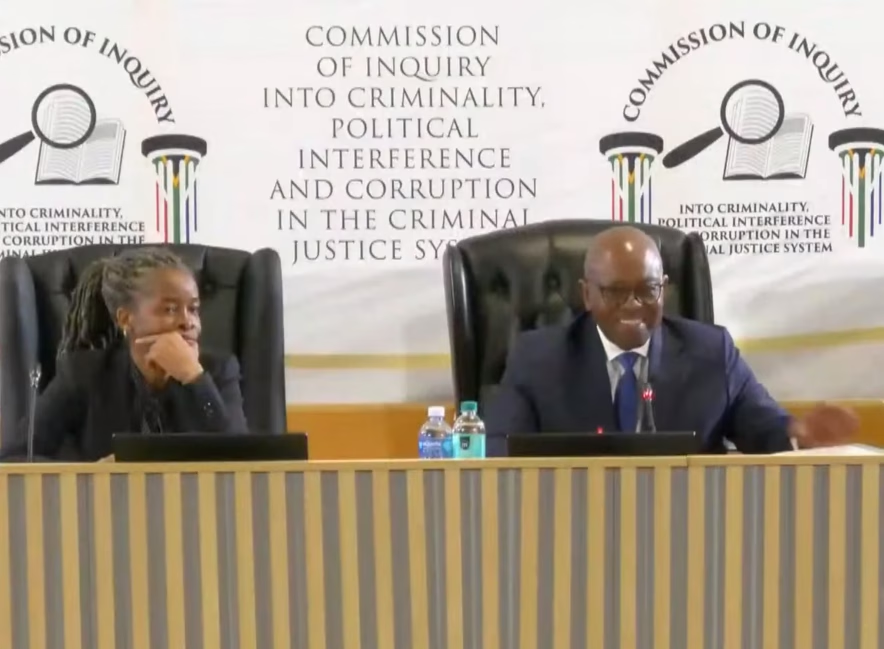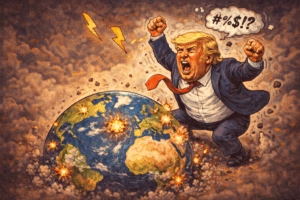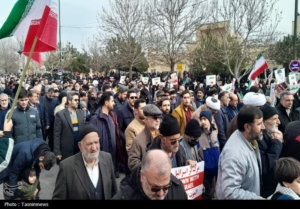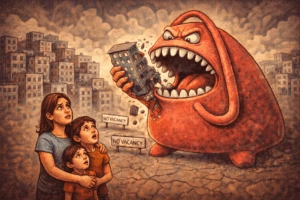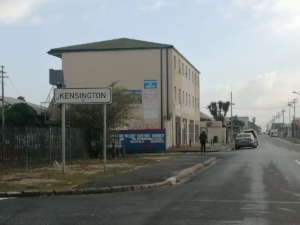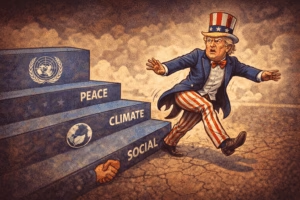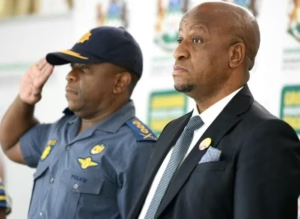The Madlanga Commission of Inquiry once again faced a postponement on Monday morning after several media organisations challenged the decision to hold upcoming hearings behind closed doors. The latest delay came as journalists and editors pressed for full public access to testimony that was initially announced as confidential.
Commissioner Justice Mbuyiseli Madlanga announced that both the media houses and the commission’s evidence leaders have been granted until 9 p.m. on Monday to submit their written arguments.
The dispute arose when the commission issued a statement confirming that the next witness testimony would take place in a closed session. This triggered objections from several media outlets, which argued that secrecy undermined the public’s right to information and the principle of open justice.
The evidence leaders, however, maintained that certain portions of the testimony could include sensitive material, warranting privacy for national or personal security reasons. The tension between transparency and confidentiality has now placed the Commission at the centre of a broader debate about accountability in public inquiries.
Chief Evidence Leader, Advocate Matthew Chaskalson SC, confirmed that the evidence leaders and commissioners had agreed to finalise their responses by 5 p.m. on Monday. Their written arguments, he said, were aimed at assisting the Commission in its deliberations and ensuring a fair process.
Chaskalson also noted that the media’s legal representatives, led by attorney Charles du Plessis of Philip de Klerk Attorneys, were invited to file written submissions within the same timeframe.
Representing the coalition of media outlets, Du Plessis reiterated their objection to the proposed order for private hearings. According to Du Plessis, transparency is essential for maintaining confidence in the Commission’s work and its findings.
Both parties have expressed their readiness to proceed efficiently once a ruling is delivered. Justice Madlanga noted that further sessions would be scheduled as soon as the presiding authorities reach a decision on the application. For now, the Commission remains at a standstill, balancing the principles of openness with the sensitivities of confidential evidence.
The outcome of this procedural battle will likely shape how future inquiries handle similar disputes between public access and the need for discretion. As South Africa continues to demand greater accountability from its institutions, the Madlanga Commission’s next step will be closely watched.
While transparency remains a cornerstone of democratic accountability, the Madlanga Commission must exercise great caution in deciding how much information to disclose. Public exposure of sensitive testimony, particularly where individuals’ safety or reputations are at risk, can have severe and irreversible consequences.
Witnesses who come forward under assurance of confidentiality may face threats, intimidation, or social persecution if their identities or statements are made public. In such cases, discretion is not a barrier to justice but rather a safeguard that allows the truth to emerge without endangering those who provide it. The Commission’s duty, therefore, is to strike a delicate balance between openness and protection, ensuring that the pursuit of public interest does not inadvertently place lives in jeopardy.
At the same time, media organisations must approach this matter with moral and ethical clarity. While the press plays an indispensable role in holding power to account, it must also recognise that unrestricted exposure can at times cause harm rather than serve the public good.
Responsible journalism demands sensitivity to context, especially when reporting on testimonies that could inflame tensions or compromise ongoing investigations. Upholding the principles of accuracy, fairness, and respect for human dignity should guide every newsroom’s decision. By acknowledging the gravity of what is at stake, the media can continue to inform the nation while preserving the safety and integrity of those who step forward to tell their stories.

